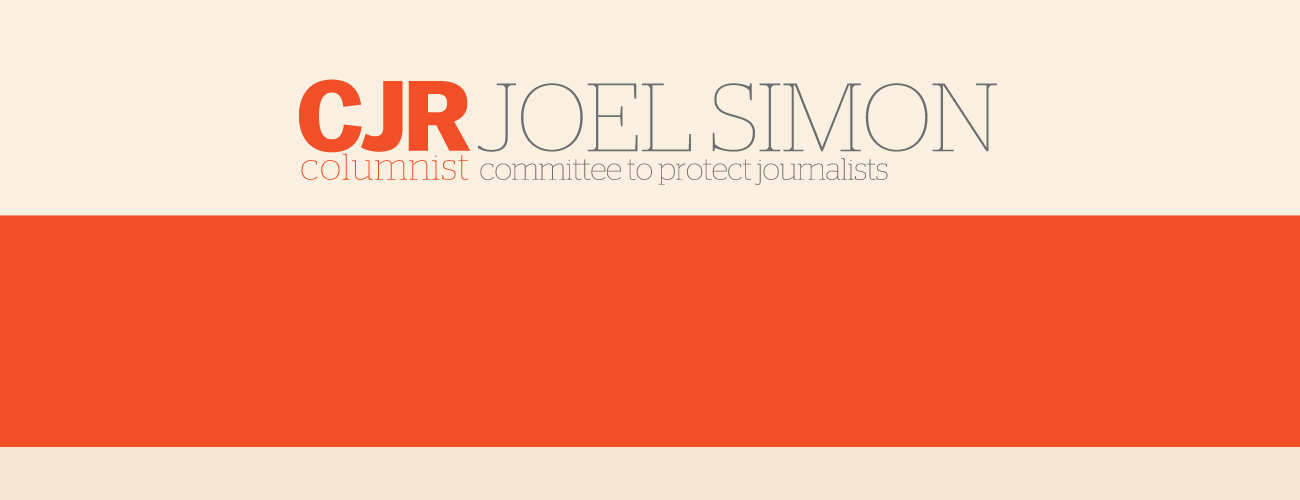When President Donald Trump meets tomorrow with Turkey’s President Recep Tayyip Erdogan, he will complete the press freedom violators trifecta. Trump has already met with President Abdel Fattah el-Sisi of Egypt, whose country holds 25 journalists behind bars, and President Xi Jinping of China, where 38 journalists are imprisoned. Turkey holds at least 81 journalists in jail, according to data compiled by the Committee to Protect Journalists. These three countries are the world’s leading jailers of journalists and together account for more than half of all journalists imprisoned around the world.
We don’t know what President Trump has said behind closed doors in his previous meetings, but we do know that he has praised both Xi, whom Trump hosted at Mar-a-Lago, and Sisi, who he claimed is doing a “fantastic job.” Along with the ceaselessly hostile rhetoric toward the US media—the rants about fake news, failing news organizations, and journalists as “enemies of the American people”—Trump’s embrace of the world’s leading press freedom violators is serving to normalize media repression. The damage to the global press freedom movement is hard to overstate.
To understand why this is, one must dig into the data. Since 1992, CPJ has compiled an annual list of journalists in prison around the world. The 259 journalists in prison at the end of last year represent the highest number ever recorded. What is even more disturbing is that repression is concentrated in a handful of nominally democratic countries such as Egypt, Turkey, and Ethiopia.
The Trump administration is delivering a different message on the global stage: Journalists are contemptible, and governments that crack down on the media face no consequences in terms of their relationship with the US.
Pressuring these governments to release imprisoned journalists depends on isolating them and depriving them of the ability to call themselves democracies. Simply put, democratic leaders, no matter how large their margin of victory at the ballot box, do not put critical journalists in jail. Doing so undermines accountability and deprives citizens of any meaningful opportunity to participate in the political process. That is why on World Press Freedom Day—marked each year on May 3—UN Secretary General António Guterres called for “an end to all crackdowns against journalists,” noting that “a free press advances peace and justice for all.”’
ICYMI: The lesson news managers can learn from Comey’s firing
Attempts by countries like Turkey and Egypt to justify their media repression by claiming they are cracking down on terrorism and operating within democratic norms must be aggressively countered. Both countries are strategically important to the United States, and so under former President Barack Obama the message in support of press freedom was delivered inconsistently. For example, at the height of the a last major Turkey media crackdown in 2012, then US Ambassador Frank Ricciardone was quite outspoken, as well Secretary of State Hillary Clinton. But President Obama himself did not speak out.
In China, which does not claim to be guided by democratic principles, the dynamic is different. The country’s leadership believes media must serve the interests of the Communist Party, but precisely what those interests are has varied depending on who is in power. President Hu Jintao regularly called on the media to expose corruption at the local level, believing this would lead to more efficient government. President Xi, meanwhile, has reversed course, demanding more conventional loyalty. Still, China is bound by international law, including Article 19 of the Universal Declaration of Human Rights, which guarantees freedom of expression to all. While the US may not be able to exert much influence over China directly, it is still important to stand up for those principles.
The Trump administration, however, is delivering a different message on the global stage. It is this: Journalists are contemptible, and governments that crack down on the media face no consequences in terms of their relationship with the US. Secretary of State Rex Tillerson all but institutionalized this position when he noted in a May 3 speech to all state department employees that an “America First” agenda means deemphasizing human rights. That’s terrible news not only for the Turkish journalists languishing in jail but for all those around the world seeking to report independently in places where the government claims the power to determine the truth.
RELATED: 11 images that show how the Trump administration is failing at photography
Joel Simon is the founding director of the Journalism Protection Initiative at the Craig Newmark Graduate School of Journalism.

